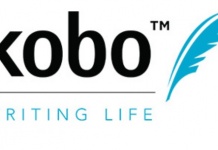Not content to have Author Solutions on board to take care of all its author-charging needs, Penguin Random House has apparently decided to go direct, with the launch, via the UK Writer’s Academy, of the online ” Creative Writing for Beginners” course. Offered at a price of £499 ($821), with an Early Bird Rate of £350 ($576), this course will run from March 14th, 2014 for 10 weeks of online interactive tuition which will, it is claimed, equip participants with “the essential skills and techniques you need to get started writing fiction.”
 The Writer’s Academy makes very positive play of the fact that it is connected to a major publisher. “In contrast to other writing classes you will learn with experienced creative writing tutors, and interact with published Random House authors,” its introduction states, also offering “three sessions during the writing course where your questions are answered by a published Random House author,” and “unique content from world-class Random House editors that will help you to become a writer.”
The Writer’s Academy makes very positive play of the fact that it is connected to a major publisher. “In contrast to other writing classes you will learn with experienced creative writing tutors, and interact with published Random House authors,” its introduction states, also offering “three sessions during the writing course where your questions are answered by a published Random House author,” and “unique content from world-class Random House editors that will help you to become a writer.”
There is also an additional come-on at the end of the course, as follows: “On completion of the writing course, you will have the option to submit your work for detailed written feedback from a Random House editor on how to further improve and develop your creative writing skills. We will match you to an editor to suit your writing style and the genre you are writing in. An additional fee of £99 [$163] applies.” Yes, a £99 reading fee – after you’ve already paid for your course.
This venture apparently falls under the remit of Random House Enterprises, launched in the UK in 2012 to “pursue multi-platform business opportunities. RHE will look at how content and intellectual property can be used across platforms including TV, licensing and merchandising, gaming and live events.”
Unfortunately, RHE’s remit doesn’t seem to include considerations of questions like conflict of interest, which, let’s remind ourselves, is “a set of circumstances that creates a risk that professional judgement or actions regarding a primary interest will be unduly influenced by a secondary interest.” And in this case, the conflicted interests are (deep breath) editorial integrity, as well as the interests of writers, aspirant or otherwise.
As Mark Coker, founder of Smashwords, so succinctly put it in his predictions for 2014 in Huffington Post, “The vanity approach to self-publishing, as witnessed by Pearson/Penguin’s acquisition of Author Solutions … has shown itself to harm the brands of all traditional publishers … The Author Solutions business model is wholly dependent upon making money by selling overpriced services to unwitting authors … The model represents the antithesis of what the best and proudest publishers have always represented. Great publishers invest in their authors. The money flows from reader to retailer to publisher to author, not from author to publisher.”
No shit. But it appears some Big Five publishers just don’t want to get the message.
I’ve no special reason to believe that the Writers’ Academy is overcharging its participants. But shouldn’t someone remind its budding authors-to-be that the publisher is supposed to pay them, not vice versa? The butcher getting the cattle to pony up for steroid treatments on the way to the slaughterhouse? Now that’s a first.


































There are a lot of good writing courses offered online. I’ve worked for Writers Online and Savvy Author, and I can recommend both. They specialize in genre writing. There’s also many courses via various RWA chapters.
None are as remotely pricey for so little course information. (The ten-week course is only an article/class interaction once a week. )